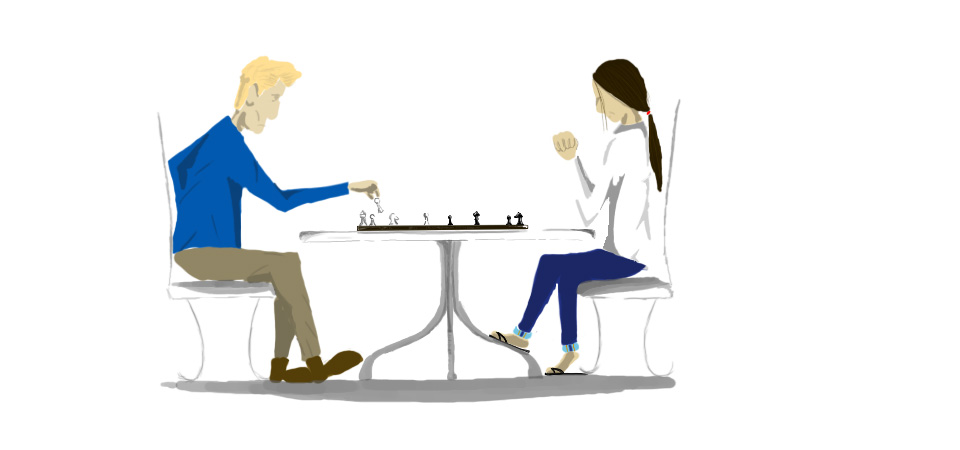Over spring break, Dalton Ruggieri ’18, travelled to the College Section of the Virginia Scholastic and College Chess Championships where he came in second, losing to the current State Champion from University of Virginia.
“We didn’t really plan on going or anything,” Ruggieri said. It just kind of happened. We were like ‘oh, wait, there’s this state chess tournament,’ and those that could go, just went.”
“Those that could go” ended up being only Ruggieri, who, despite finding out about the tournament only two days in advance, played four rounds in the tournament, the first that the chess club has competed in this year.
Participation, despite the win, is an anomaly in the current chess club.
“Though I am the current president, I am less about the competitive aspect and treat it more as a game, as something to experiment with,” Collin Henson ’16 said.
Nevertheless, the club’s future may include more competition than in previous years.
“Every year we like to have different leadership to let the younger people take over. Dalton is going to take over as president next year, he is already looking for more ways to expand chess club [membership] and engage with the community,” Rafael Ordonez ’16 said.
Some of the changes Ruggieri envisions for the future include club expansion and increased competition.
Ruggieri has been in discussions with chess clubs at other schools including U.Va., Virginia Tech and James Madison University regarding the establishment of a monthly online competition.
This competition would be a low stakes way for each school to improve by playing against new opponents.
In addition to the low stakes monthly games planned against other state schools, Ruggieri is interested in having the team compete in other, larger chess tournaments such as the Virginia State Championships and the PanAmerican Intercollegiate Chess Tournament.
However, despite Ruggieri’s drive to expand, some obstacles may remain.
“The real problem that has been preventing the tournaments is that it requires individual membership in various chess organizations, which is fairly costly. Thus, it is difficult to put a team together for tournaments due to this cost, as most people would prefer to play chess and not pay for it,” Henson said.
While the current chess team has only four consistent members — none of whom are regularly involved in chess competitions — some have experience with chess tournaments and the potential benefits that may come from playing against other schools.
Ordonez, for example, played in a tournament his senior year of high school, matching his three losses with three wins and being awarded “Best Unrated Player.”
Outside of competition, though, Ruggieri has other plans for moving the chess club forward.
“We’re starting to work with NICE, which is Norfolk Initiative for Chess Excellence. They’re an organization that kind of brings chess to mostly young children, but also other ages,” Ruggieri said.
NICE came to Williamsburg in January and made an impact on Ruggieri and the other members of the club.
Working with NICE, the chess club hopes to begin playing with local elementary school students in the Williamsburg area.
Despite these plans, however, certain challenges still exist for chess club moving forward.
Current members foresee future membership being a serious concern.
“The main problem is that numbers fluctuate throughout the year, as people get busy. Hopefully, Dalton is able to schedule the club so that as many people can fit the club in their schedule,” Henson said.
Echoing this, other members also worry about issues involved in funding and maintenance.
“Some challenges might be getting money for funding trips or getting USCF memberships to participate in tournaments. Also, we have difficulty in attracting new members. At the beginning of the year, we get lots of people that come, but they drop off later in the year,” Ordonez said.
Despite these challenges moving forward, Ruggieri and the other members remain hopeful about the club’s potential in future tournaments.
“I think had more William and Mary students come, we would have had a really good shot to have gotten first. So hopefully in the future we’ll be able to pull out some more wins,” Ruggieri said.




































